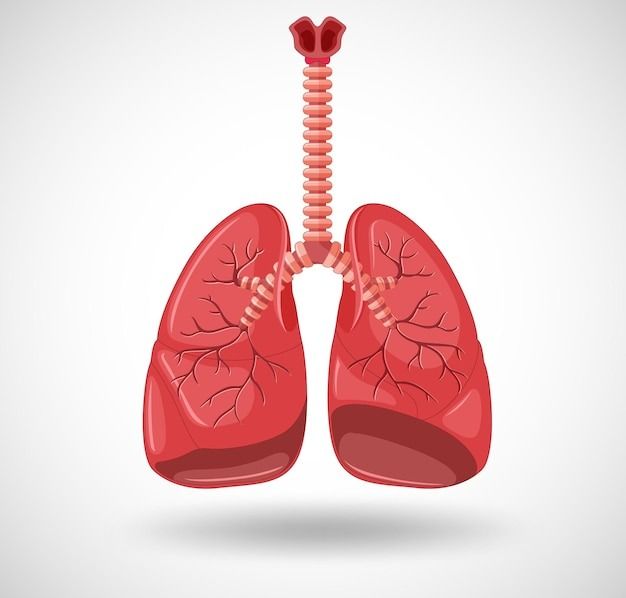Obesity and obstructive sleep apnea (OSA) represent a significant public health concern. These conditions often coexist, creating a vicious cycle that exacerbates health problems. Obesity is common worldwide. It affects millions of people and has many complications. Similarly, sleep apnea is common but serious. It can lead to health issues if untreated. Understanding the link between obesity and obstructive sleep apnea is crucial. It is key for making effective treatments and improving health.
Curious about how obesity and sleep apnea are connected and often appear together? Let's dive in!
Understanding Obesity and Obstructive Sleep Apnea
Obesity is a chronic condition characterized by excessive fat accumulation that may impair health. But obstructive sleep apnea is different. It is a person's airway becomes partly or fully blocked during sleep. This blockage causes breathing to stop and start repeatedly. It leads to disrupted sleep and less oxygen to vital organs. OSA symptoms include loud snoring. You may also have choking or gasping during sleep. You might also have excessive sleepiness during the day and morning headaches. If not treated, OSA can cause serious health problems, including hypertension, heart disease, stroke, and diabetes.
Struggling with sleep apnea? Schedule your consultation with a pulmonologist to discover personalized strategies to lose weight and improve your sleep quality.
But how exactly does extra weight lead to sleep apnea? Here’s what you need to know.
How does obesity affect obstructive sleep apnea?
Obesity significantly increases the risk of developing obstructive sleep apnea. Too much body fat, especially around the neck and upper airway, can narrow the airway and squeeze the respiratory system, making it more difficult to keep the airway open during sleep. Also, fat in the abdomen can reduce lung volume. It makes breathing harder, which worsens sleep apnea. Studies have shown that even a small weight gain can worsen OSA. Weight loss can often improve or cure it.
- An analysis suggests that as many as 936 million individuals globally may be suffering from OSA. The increasing levels of obesity contribute to this rise in sleep apnea rates.
- Obesity is closely linked to OSA, and the rising levels of obesity are driving higher rates of sleep apnea.
Dr. Babita Goel, an experienced general physician, explains: "Obesity primarily causes obstructive sleep apnea by increasing fat deposits around the neck area, which can narrow the airway and make it more likely to collapse during sleep. This not only disrupts sleep quality but also significantly affects overall health by reducing oxygen flow during these episodes."
Can obstructive sleep apnea cause weight gain?
Surprisingly, it’s a two-way street. Here’s how sleep apnea can make you gain weight. The answer might change how you think about sleep! Keep scrolling.
Yes, obstructive sleep apnea can contribute to weight gain. The condition disrupts normal sleep patterns, leading to chronic sleep deprivation. Lack of sleep affects the hormones that control hunger and appetite. It makes you crave high-calorie foods and overeat. Also, OSA fatigue reduces activity, further adding to weight gain. This creates a cycle where weight gain exacerbates OSA, leading to more weight gain.
Tired of tossing and turning? Get in touch with an experienced nutritionist today to find ways to get a personalized diet plan based on your health history.
Health risks of obesity and obstructive sleep apnea
Cardiovascular Diseases: Increased risk of hypertension, heart failure, and coronary artery disease due to the strain on the heart caused by repeated oxygen drops during apneic events.
Type 2 Diabetes: There is a higher likelihood of developing insulin resistance and type 2 diabetes as both obesity and sleep apnea influence glucose metabolism.
Metabolic Syndrome: Greater chance of experiencing symptoms like high blood pressure, high blood sugar, excess body fat around the waist, and abnormal cholesterol levels.
Respiratory Issues: Compromised breathing due to fat deposits in the neck and chest, worsening conditions such as asthma and chronic obstructive pulmonary disease (COPD).
Cognitive and Mental Health Effects: Increased risk of memory loss, concentration issues, and mood disorders such as depression and anxiety due to poor sleep quality and chronic fatigue.
Increased Cancer Risk: Some studies suggest a potential link between severe untreated sleep apnea and an increased risk of developing certain types of cancer.
Hopeful about weight loss? Good news—losing weight can make a huge difference. Here's the impact it could have on sleep apnea.
Can losing weight cure sleep apnea?
Losing weight can significantly improve and, in some cases, cure obstructive sleep apnea. It reduces fat around the airway, lowers inflammation, and improves breathing, keeping the airway open during sleep. Studies have shown that even a 10% reduction in body weight can significantly improve OSA symptoms. In some cases, weight loss can remove the need for other treatments, such as continuous positive airway pressure (CPAP) therapy.
Are you struggling with both obesity and sleep issues? You're not alone, book your appointment with the specialists now, and understanding the link between these conditions is the first step to better health.
Conclusion
Obesity and sleep apnea are closely linked. They can greatly harm health and quality of life. Understanding the link between these two conditions is key to making effective treatments. Addressing obesity can greatly reduce sleep apnea symptoms. This can be done through lifestyle changes, medical help, and, in some cases, surgery. Similarly, treating OSA can help manage weight and improve metabolic health. Managing both conditions is key. It reduces health risks and improves well-being.
FAQs
Can Children Be Affected by Obesity and Obstructive Sleep Apnea?
Yes, children can be affected by both obesity and obstructive sleep apnea. Being obese as a child raises the risk of getting OSA. OSA can cause behavior problems, bad school performance, and health issues.
Does Treating Sleep Apnea Affect Body Weight?
Treating sleep apnea can help stabilize body weight. Good treatment improves sleep. This can fix hunger and appetite hormones. It can cut cravings and boost energy for activity.






